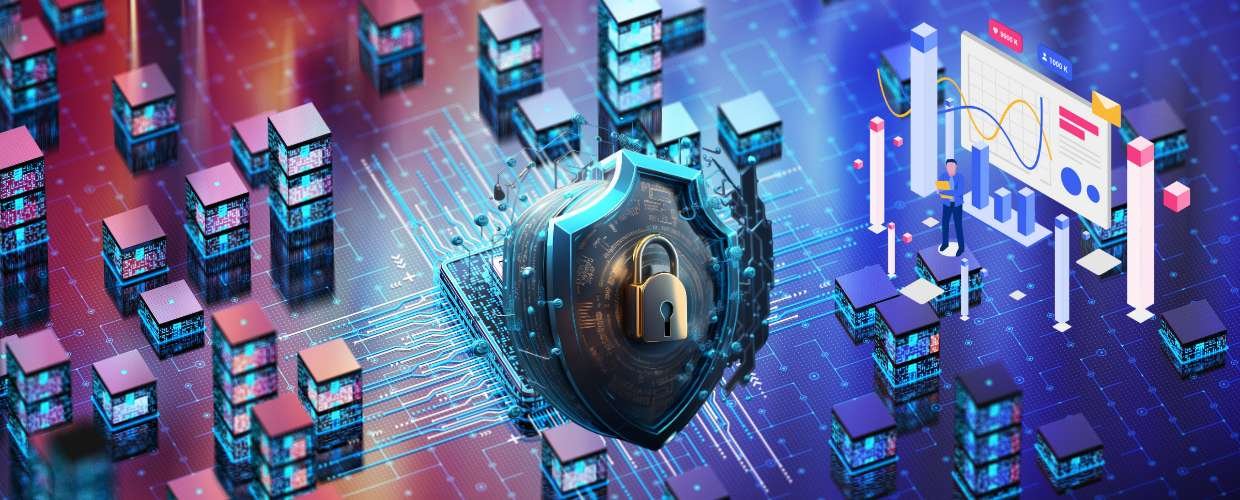Cybersecurity has emerged as a critical priority in today’s interconnected world, with the increasing frequency and sophistication of cyber threats. This analysis provides an in-depth overview of the current state of the cybersecurity market, including key trends, major players, challenges, and future prospects.
Market Overview
The global cybersecurity market is witnessing exponential growth, driven by the escalating frequency and severity of cyber-attacks across various industries. Cyber threats, including ransomware, phishing, and data breaches, pose significant risks to organizations, governments, and individuals. The market encompasses a broad range of products and services, including network security, endpoint security, cloud security, identity and access management, and cybersecurity consulting.
The approximate decision of the Techgolly market analysis team is the global cybersecurity market size was valued at least USD 200 billion in 2023 and continues to be projected to reach up to USD 500 billion by 2030. The growth will continue at a compound annual growth rate (CAGR) of 12% to 14% from 2023 to 2030.
The demand for robust cybersecurity solutions is propelled by the increasing digitization of businesses, the proliferation of internet-enabled devices, and the rise of remote work. Organizations are recognizing the importance of investing in comprehensive cybersecurity measures to protect their sensitive data, intellectual property, and customer information.
Key Market Trends
The cybersecurity market is evolving rapidly to keep pace with the changing threat landscape. Several trends are shaping the direction of the market.
Zero Trust Security Model
The Zero Trust security model is gaining prominence, emphasizing the need to verify every user and device attempting to access an organization’s network. This approach ensures that no one is implicitly trusted, whether inside or outside the organization. Zero Trust helps prevent lateral movement of threats within the network and enhances overall security posture.
Artificial Intelligence (AI) and Machine Learning
Integration AI and machine learning are being increasingly integrated into cybersecurity solutions to enhance threat detection, automate response mechanisms, and analyze massive volumes of data. AI-powered cybersecurity systems can detect anomalies, identify patterns, and predict potential cyber threats, enabling faster and more accurate threat detection and response.
Cyber Resilience and Incident Response Planning
Cyber resilience is gaining traction as organizations recognize the importance of effectively preparing for and responding to cyber incidents. Developing incident response plans, conducting regular simulations, and implementing a proactive approach to cybersecurity are critical aspects of cyber resilience. Businesses are investing in cybersecurity training and simulations to prepare their teams for potential cyber-attacks and minimize damage.
Cloud Security Solutions
With the increasing adoption of cloud computing, the demand for dedicated cloud security solutions is on the rise. Cloud security involves securing data, applications, and services hosted in the cloud, addressing specific challenges related to cloud environments as businesses continue to migrate to the cloud, protecting sensitive data, and maintaining regulatory compliance.
Challenges:
The cybersecurity market faces several challenges that necessitate strategic interventions to ensure effective cybersecurity measures and risk mitigation. Some notable challenges include:
Evolving Threat Landscape
Cyber threats are constantly evolving, becoming more sophisticated and challenging to detect and mitigate. Attackers adapt to new technologies and exploit vulnerabilities, necessitating continuous updates and improvements in cybersecurity solutions to stay ahead of emerging threats.
Skills Gap and Workforce Shortage
There is a significant shortage of skilled cybersecurity professionals to meet the growing demand for cybersecurity expertise. Bridging the skills gap requires investments in education, training programs, and initiatives to attract more individuals to cybersecurity careers.
Privacy Concerns and Regulatory Compliance
Addressing privacy concerns and complying with ever-changing regulations related to data protection and privacy is a significant challenge. Organizations must navigate complex legal frameworks and ensure compliance with regulations such as the General Data Protection Regulation (GDPR) and the California Consumer Privacy Act (CCPA).
Future Outlook
The cybersecurity market is poised for continued growth and innovation as organizations and individuals become increasingly aware of cyber threats and the need for robust cybersecurity measures.
Integration of 5G and Cybersecurity
With the advent of 5G technology, the integration of cybersecurity into 5G networks will be crucial to ensure the security and privacy of the vast amounts of data transmitted over these networks. The intersection of 5G and cybersecurity will present new opportunities and challenges that the industry will need to address.
Quantum-Safe Cryptography
The emergence of quantum computing poses a threat to current encryption methods. The future of cybersecurity will involve developing and implementing quantum-safe cryptography to ensure data remains secure even in the face of advancements in quantum computing.
Increased Focus on Consumer Cybersecurity
As more individuals rely on digital platforms for various aspects of their lives, there will be a heightened focus on consumer cybersecurity. Personal cybersecurity solutions and educational initiatives will become increasingly important to empower individuals to protect their digital identities and assets.
Conclusion
The cybersecurity market is fundamental in safeguarding digital assets and maintaining the integrity of our increasingly connected world. As cyber threats continue to evolve, the market will need to innovate and adapt to ensure comprehensive protection against emerging risks. Collaboration, education, and proactive measures will play a crucial role in fortifying our cybersecurity landscape for a secure future.





